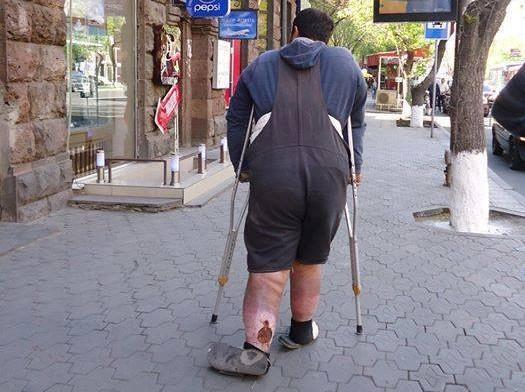“Juju, see how much money I have, all by the passers-by. What’s wrong with you? You’re worn out,” said someone and disappeared. It was one of the guys from the orphanage, who ate so much that they used to call him a “bun.” He is one of the most reputable and oldest beggars of the city; he even owns his territory. Hardly dragging the legs, he reached the crossroad, collapsed on the floor with all the strength of his body and spread over his handkerchief; who knows, luck may come his way, too.
This is how one takes up begging. First drowning your dignity, you hardly look into the eyes of people, then, slowly, you master that “art” better than “professionals.” You skillfully catch the look of everyone and figure out at the right point whom to bless, and whom to curse. He calls “kings” those who give much money, but you cannot meet kings every day, and you should somehow survive, yes? Step by step you learn to look straightforward into the eyes of passers-by, even with claimer’s rights.
